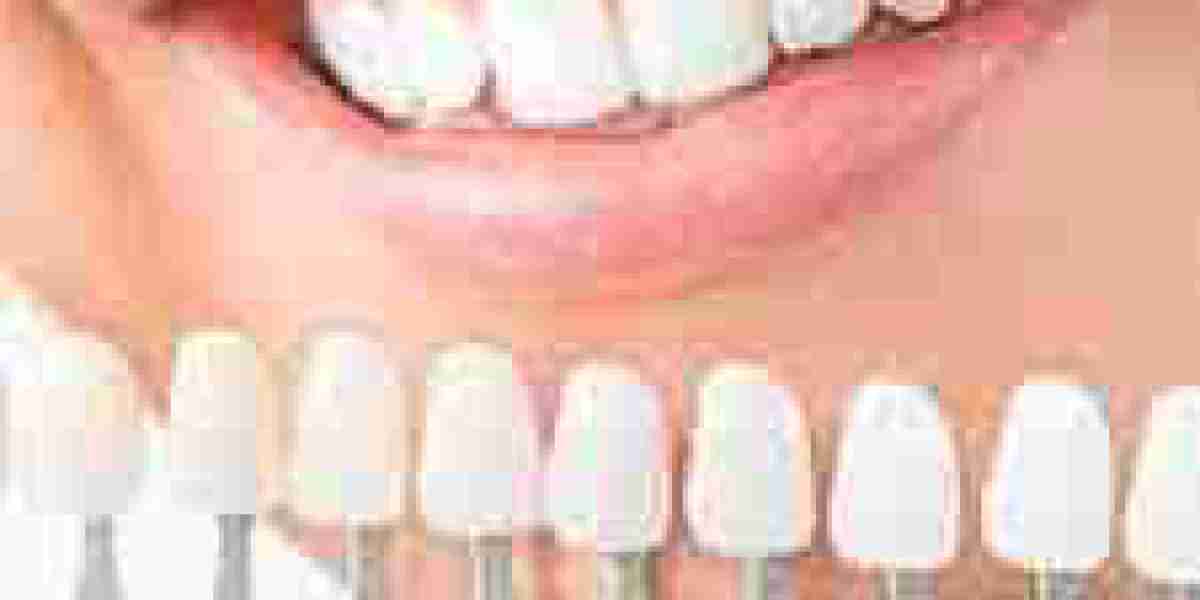When it comes to replacing missing teeth, partial dentures offer a versatile and effective solution for many individuals. These dental appliances not only restore your smile but also improve your ability to speak and chew properly. Whether you're new to the world of dentures or looking to upgrade your current set, understanding the various options and the customization process can help you make an informed decision. This guide will walk you through everything you need to know about partial dentures, from their benefits to the customization process.
Understanding Partial Dentures
What Are Partial Dentures?
Partial dentures are removable dental prosthetics designed to replace one or several missing teeth. Unlike full dentures, which replace an entire set of teeth, partial dentures fill in the gaps left by missing teeth, while your remaining natural teeth stay intact. This makes them a popular choice for individuals who still have some healthy teeth.
Types of Partial Dentures
There are several types of partial dentures available, each with its own set of advantages:
- Acrylic Partial Dentures: These are the most common type and are typically more affordable. They consist of an acrylic base that matches the color of your gums and artificial teeth that blend in with your natural teeth.
- Metal Framework Partial Dentures: These offer greater durability and a more secure fit. The metal framework provides a strong base, while the gum-colored acrylic holds the artificial teeth in place.
- Flexible Partial Dentures: Made from a flexible material, these dentures offer a more comfortable fit and are less likely to cause irritation. They also blend seamlessly with your natural gums and teeth.
Benefits of Partial Dentures
Partial dentures offer numerous benefits, including:
- Improved Aesthetics: They restore your smile and help maintain the natural shape of your face.
- Enhanced Functionality: Partial dentures improve your ability to chew and speak, which can be compromised by missing teeth.
- Cost-Effective: Compared to dental implants or bridges, partial dentures are a more affordable option.
- Non-Invasive: The process of getting partial dentures is less invasive than surgical procedures like dental implants.
The Customization Process
Initial Consultation
The journey to getting your perfect set of partial dentures begins with an initial consultation with your dentist. During this visit, your dentist will assess your oral health, take impressions of your mouth, and discuss your options. This is also the time to ask any questions you may have and express any preferences regarding the appearance and fit of your dentures.
Designing Your Dentures
One of the most exciting aspects of getting partial dentures is the ability to customize them to your liking. You can choose from a variety of tooth shades and molds to ensure your new teeth look as natural as possible. This customization process typically involves the following steps:
- Shade Selection: Dentists use a shade guide to help you choose the color of your artificial teeth. With over twenty-six shades available, you can find the perfect match for your natural teeth.
- Mold and Size Selection: With over thirty molds and sizes of teeth to choose from, you can select the shape and size that best fits your mouth and complements your facial features.
- Try-In Stage: Before finalizing your dentures, a try-in version is created. This allows you to see how the dentures will look and feel in your mouth. Any necessary adjustments can be made at this stage to ensure a perfect fit.
Fabrication and Fitting
Once the design is finalized, your partial dentures will be fabricated using high-quality materials. This process can take a few weeks, after which you will return to your dentist for a fitting. During the fitting appointment, your dentist will ensure that the dentures fit comfortably and make any final adjustments.
Caring for Your Partial Dentures
Proper care and maintenance of your partial dentures are crucial for their longevity and your oral health. Here are some tips to keep your dentures in top condition:
- Daily Cleaning: Clean your dentures daily using a soft-bristle toothbrush and denture cleaner. Avoid using regular toothpaste, as it can be abrasive and damage the dentures.
- Soaking: Soak your dentures overnight in a denture solution to keep them moist and prevent them from drying out.
- Regular Check-Ups: Visit your dentist regularly for check-ups and professional cleanings. This helps ensure that your dentures continue to fit well and that your oral health remains in good condition.
- Handle with Care: When cleaning or handling your dentures, do so over a soft surface or a sink filled with water to prevent them from breaking if dropped.
Common Concerns and Solutions
Adjusting to New Dentures
It's normal to experience some discomfort and difficulty when adjusting to new partial dentures. Here are some common issues and their solutions:
- Sore Spots: If you experience sore spots, visit your dentist for adjustments. They can modify the fit to alleviate discomfort.
- Difficulty Speaking: Practice speaking with your dentures in place. Reading aloud can help you adjust more quickly.
- Eating Challenges: Start with soft foods and gradually introduce harder foods as you become more comfortable.
Potential Complications
While partial dentures are generally safe and effective, some potential complications can arise:
- Allergic Reactions: Some individuals may have allergic reactions to the materials used in dentures. If you experience any unusual symptoms, contact your dentist immediately.
- Infections: Poor oral hygiene can lead to infections. It's important to maintain a regular cleaning routine and visit your dentist for check-ups.
- Breakage or Damage: Accidents can happen, and dentures can break or become damaged. Handle them with care and seek professional repairs if needed.
Alternatives to Partial Dentures
While partial dentures are a great option for many, there are alternatives to consider:
Dental Implants
Dental implants are a permanent solution for missing teeth. They involve surgically placing a titanium post into the jawbone, which acts as a root for a replacement tooth. Implants offer a natural look and feel but are more expensive and require a longer healing period.
Dental Bridges
A dental bridge is a fixed appliance that replaces one or more missing teeth by anchoring to adjacent teeth. Bridges are a good option for those who prefer a non-removable solution, but they require healthy teeth to support the bridge.
Full Dentures
For individuals missing all their teeth, full dentures are an option. They replace an entire arch of teeth and are custom-made to fit your mouth. Full dentures can be removed for cleaning and are less expensive than implants.
Making the Right Choice
Factors to Consider
When choosing the right dental solution for you, consider the following factors:
- Oral Health: Your current oral health status can influence your choice. For example, dental implants require healthy gums and sufficient bone density.
- Budget: Consider the cost of each option. Partial dentures are typically more affordable than implants or bridges.
- Lifestyle: Think about your lifestyle and how each option will fit into it. For example, if you prefer a non-removable solution, implants or bridges may be more suitable.
Consulting with Your Dentist
Ultimately, the best way to make an informed decision is to consult with your dentist. They can provide personalized recommendations based on your oral health, preferences, and budget.
The Future of Dentures
Advancements in dental technology continue to improve the functionality and aesthetics of dentures. Some of the latest innovations include:
Digital Dentures
Digital dentures are created using computer-aided design and manufacturing (CAD/CAM) technology. This allows for more precise fittings and faster turnaround times. Digital dentures also offer a higher level of customization and can be easily replicated if lost or damaged.
Implant-Supported Dentures
Implant-supported dentures combine the benefits of dentures and dental implants. These dentures are anchored to dental implants, providing a more secure fit and improved stability. This option is ideal for those seeking a long-term, reliable solution.
Materials and Aesthetics
Advancements in materials science have led to the development of more durable and natural-looking denture materials. Modern dentures are designed to closely mimic the appearance of natural teeth, providing a more realistic and aesthetically pleasing result.
Conclusion
Partial dentures offer a practical and affordable solution for individuals missing one or several teeth. With the ability to customize your dentures to match your natural teeth, you can achieve a comfortable fit and a confident smile. Whether you opt for acrylic, metal framework, or flexible partial dentures, proper care and regular dental visits are essential to maintaining your oral health.
Understanding the various options and the customization process can help you make an informed decision. If you're considering partial dentures, consult with your dentist to determine the best solution for your needs. With advancements in dental technology, the future of dentures is bright, offering even more options for restoring your smile and improving your quality of life.



